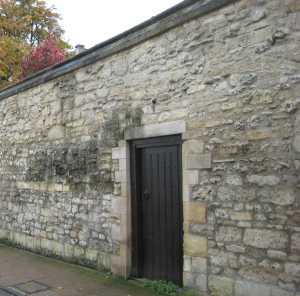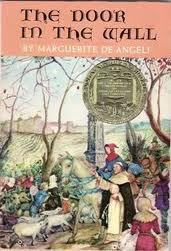parting thoughts
 I’m trying to stay up long enough to watch Medieval Dead on the Yesterday channel. I’m catching the 7:20 bus to London tomorrow morning so I can have breakfast with my friend Mary before heading to Heathrow to catch my flight back to NYC. I need to write but instead I’ve been watching WAY too much TV. Got a good night’s rest finally, and spent the day picking up souvenirs, touring the Bodleian, grappling with the *two* Huggins cases (yes, TWO–apparently I’ve been reading the past wrong), and searching for the college by the river where a certain episode of Inspector Lewis was filmed. I should have asked that question during my walking tour on Saturday but I was too pleased with myself for recognizing sites in Oxford that even the guide didn’t know about. When I think about living in the UK I often wonder whether I would be able to build as diverse a community as I enjoy in the US. There was one other American on the Morse walking tour—a white woman with a Southern accent who clearly knew a lot about the shows. I was one of two people of color on the tour (there was an Asian woman with her white husband) and I think I was also the youngest, so I didn’t really plan to mingle. But midway through the tour I asked where the other American woman was from (North Carolina) and within 30 seconds—I’m not kidding—we were talking about race. And it was SUCH a relief! I needed someone else to acknowledge that Oxford is mighty white…even on an elite US campus like Harvard, I think I’d see a lot more people of color than I’ve seen in the few days I’ve spent here. One black man made direct eye contact with me on High Street yesterday. One. The black women, when they look at me at all, immediately look away. It reminds me of Toronto and how I’m always counting the black people I see in the street and hoping for some kind of connection. I think if I lived here I’d have to learn to bite my tongue a lot. Or maybe I’d find a community of people who are willing to analyze race with every breath they take.
I’m trying to stay up long enough to watch Medieval Dead on the Yesterday channel. I’m catching the 7:20 bus to London tomorrow morning so I can have breakfast with my friend Mary before heading to Heathrow to catch my flight back to NYC. I need to write but instead I’ve been watching WAY too much TV. Got a good night’s rest finally, and spent the day picking up souvenirs, touring the Bodleian, grappling with the *two* Huggins cases (yes, TWO–apparently I’ve been reading the past wrong), and searching for the college by the river where a certain episode of Inspector Lewis was filmed. I should have asked that question during my walking tour on Saturday but I was too pleased with myself for recognizing sites in Oxford that even the guide didn’t know about. When I think about living in the UK I often wonder whether I would be able to build as diverse a community as I enjoy in the US. There was one other American on the Morse walking tour—a white woman with a Southern accent who clearly knew a lot about the shows. I was one of two people of color on the tour (there was an Asian woman with her white husband) and I think I was also the youngest, so I didn’t really plan to mingle. But midway through the tour I asked where the other American woman was from (North Carolina) and within 30 seconds—I’m not kidding—we were talking about race. And it was SUCH a relief! I needed someone else to acknowledge that Oxford is mighty white…even on an elite US campus like Harvard, I think I’d see a lot more people of color than I’ve seen in the few days I’ve spent here. One black man made direct eye contact with me on High Street yesterday. One. The black women, when they look at me at all, immediately look away. It reminds me of Toronto and how I’m always counting the black people I see in the street and hoping for some kind of connection. I think if I lived here I’d have to learn to bite my tongue a lot. Or maybe I’d find a community of people who are willing to analyze race with every breath they take.
 Jane Suzanne Carroll’s talk last Friday was so interesting and so timely for me. She talked about how fictional characters in the fantasy novels of Susan Cooper often reveal their knowledge of history through weather events and/or landmarks. My question at the end had to do with race, of course, because in the US, people of color have often been written out of the official historical record and the novelist can then use the landscape to reassert that presence. That’s what I think I’m doing, anyway, when I write about Weeksville or the African Burial Ground in lower Manhattan. My question to Jane, which came out a bit jumbled, was whether she or anyone else had considered the way these fictional characters with their knowledge of the land might enhance a white child reader’s sense of belonging—and conversely leave a child of color here in England with a diminished claim to belonging and/or citizenship (“You’re not really British; you just got here yesterday”). I don’t know enough about kids of color here—do they identify as British in those moments and so claim the Anglo-Saxon history as their own? What does the landscape and a knowledge of its history do to/for them? Are there novels that write children of color into Britain’s past? (maybe Sarwat Chadda?) Or is that just me searching once again for a door in the wall?
Jane Suzanne Carroll’s talk last Friday was so interesting and so timely for me. She talked about how fictional characters in the fantasy novels of Susan Cooper often reveal their knowledge of history through weather events and/or landmarks. My question at the end had to do with race, of course, because in the US, people of color have often been written out of the official historical record and the novelist can then use the landscape to reassert that presence. That’s what I think I’m doing, anyway, when I write about Weeksville or the African Burial Ground in lower Manhattan. My question to Jane, which came out a bit jumbled, was whether she or anyone else had considered the way these fictional characters with their knowledge of the land might enhance a white child reader’s sense of belonging—and conversely leave a child of color here in England with a diminished claim to belonging and/or citizenship (“You’re not really British; you just got here yesterday”). I don’t know enough about kids of color here—do they identify as British in those moments and so claim the Anglo-Saxon history as their own? What does the landscape and a knowledge of its history do to/for them? Are there novels that write children of color into Britain’s past? (maybe Sarwat Chadda?) Or is that just me searching once again for a door in the wall?
I’m so glad Jane’s talk came at the start of my visit to Oxford. I’ve spent days thinking about how we (PoC) see ourselves in the landscape. Perhaps through our consumption of texts like Inspector Lewis and The Door in the Wall. Have I, as a Commonwealth writer, mapped an alternate England in my mind? That would explain the jarring feeling upon arriving in the actual country filled with actual people and multiple histories. Nick Swarbrick told me there are disputes over which county in England has the “purest claim” on faeries! I think white Britons in my mind were an undifferentiated group for a long time. I’m sure these ideas will find their way into my talk for the Canada Seminar at Harvard next February. Alison Waller’s talk helped to validate my fascination with the formative texts I read as a child in Canada; on one of her accompanying slides she included a quote from Proust in which he describes his memory of reading a favorite book from childhood, and he describes the book as loving him back—which is how we feel, isn’t it? We love a book when we’re children and we assume it loves us back—the feeling must be reciprocal! The day after Alison’s talk I had lunch with her and Roni Natov, a legend in the field of children’s literature. We talked about our favorite books from childhood and how important it can be to revisit those texts even with the knowledge that the experience will not be the same. For me, it has been somewhat traumatic to realize that the books I loved as a child never loved me—my brown-skinned, pudgy, Afro-ed self. In fact, most of those books held me in contempt, which is to say their authors never intended to address me and had little if any concern for my particular reading experience. Yet in some ways, I have remained loyal to them, which makes me think of battered woman syndrome and dream hampton’s comment in Beyond Beats & Rhymes: “Your home is hip hop and your man beats you.” Yet many women—and feminists—can’t seem to let go of rap music. Jacqueline Bobo would argue that black women (as “cultural readers”) have learned to negotiate with problematic texts so that they can extract value despite glaring stereotypes. Maybe that’s what I have done/can do…
I’m nodding off. Can’t afford to sleep in tomorrow. Maybe the pub crawlers will keep me up again. I’ve managed to catch one and a half episodes of Time Team since I’ve been here but will NOT watch it again tonight when it comes on at 11pm. Time to prepare for my own journey back through time. Back to Brooklyn. Back to work…





